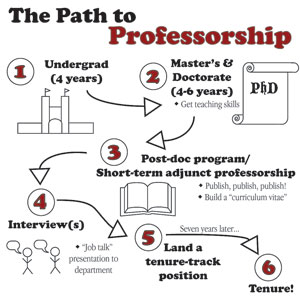 Lionel Sobehart
Lionel SobehartThe Washington University football team put forth a much improved effort Saturday night after the previous Saturday’s 7-48 loss, but ultimately came up short in its bid to defeat North Central College (NCC) on Francis Field.
The loss dropped the Bears to 2-2 for the season. It was the team’s second straight defeat after opening the 2006 campaign with a pair of victories.
Statistically speaking, the University was only slightly outmatched by the visiting Cardinals, but costly turnovers coupled with the surrendering of key long pass plays hurt the Bears in their bid to upset the perennial regional powerhouse.
“Little mistakes put us in the hole and then we had to play desperation ball,” said senior running back DaRonne Jenkins, who led the Bears with 85 rushing yards and a touchdown on 20 carries.
“The final score is not reflective of how we played as a team. We were putting drives together, but they’d have a big play and it would put us back and we couldn’t rebound,” said junior linebacker Mike Elliott, who led the team with eight tackles.
North Central opened the scoring in the first quarter when senior Anton Steinhardt took Chaz Moody 66 yards to the Wash. U. four yard line.
Three plays later, NCC senior quarterback Kam Kniss found classmate and fellow all-American Eric Studerman for a five-yard touchdown pass.
Less than four minutes later, the Cardinals put together an efficient four-play drive which culminated in a one yard rushing touchdown and gave the guests a 14-0 lead at the end of the first quarter. Kniss completed back-to-back passes for 33 and 17 yards on the drive.
With two minutes remaining in the half, the Cardinals thwarted a potential Wash. U. scoring drive by forcing and recovering a fumble after a Bears reception. With nine seconds remaining in the half, North Central added a field goal and expanded its lead to 17-0 heading into the locker room.
Veteran coach Larry Kindbom seemed frustrated with the squad’s first-half effort. “We need to come out ready to play football [right away],” said Kindbom.
“We couldn’t sustain anything early on offense,” said junior Michael Casper, a wide receiver.
In the second half, the Bears were victimized by the big play, as Kniss found teammate Perry Welch streaking down the sideline for a 55 yard touchdown pass.
Despite the 24-0 deficit, the Red and Green refused to quit. Senior Nick Henry directed the offense on a seven minute offensive drive.
Unfortunately, what appeared to be a Casper touchdown catch was called out-of-bounds and the Bears turned the ball over on downs at the North Central three-yard line.
Three plays later, though, senior captain Joe Shaughnessy intercepted a Kniss pass and returned it 21 yards for a Wash. U. touchdown with just under six minutes to go in the third.
The Cardinals responded promptly however, as Kniss tossed another TD pass, this time from two yards out, and North Central extended its lead to 31-7 just seven seconds into the final frame of play.
Henry engineered a successful touchdown drive late in the fourth quarter to make the final score more reflective of the stat sheet. The drive was capped by Jenkins’ two yard touchdown run.
Junior Kyle Gray caught a two-point conversion pass to make the score 31-15. NCC would add one final field goal to wrap up the scoring and head back to Naperville, Ill. with a hard fought non-conference victory, 34-15.
Standout performers for the University included Jenkins, Elliott and senior punter Moody, who continued his fine season with another solid outing.
The Bears return to action on the road against the Rhodes College Lynx next week in Memphis.
“We’re going to have to step it up. We play really well on the road,” said Elliott.
 Matt Rubin
Matt Rubin Anna Dinndorf
Anna Dinndorf